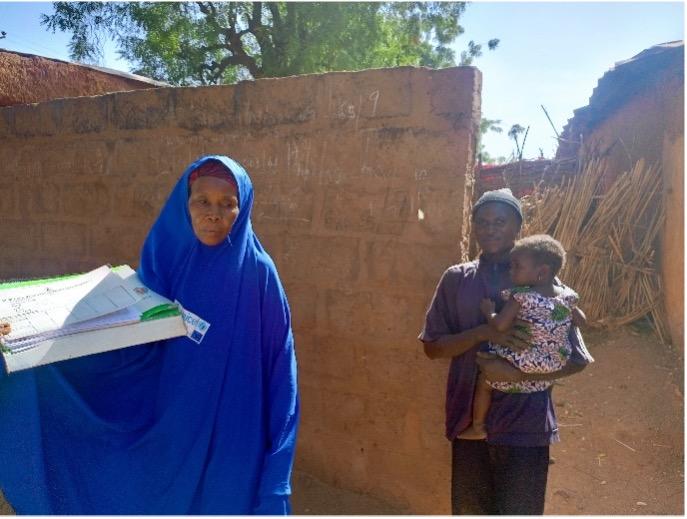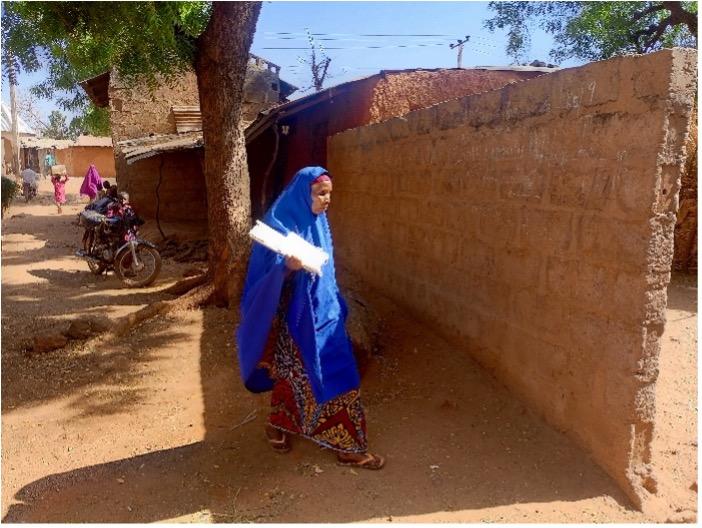Rebuilding Trust in Immunization: A Father’s Journey in Kebbi State, Nigeria

In Nigeria’s Kebbi State, a father’s personal heartbreak became a turning point in rebuilding community trust in immunization. This story reveals how a dedicated Volunteer Community Mobilizer transformed vaccine refusal into advocacy—underscoring the power of empathy, resilience, and community-based SBC approaches in outbreak contexts.
Photo: A community health worker discusses immunization with a father in Kebbi State during the April 2025 polio campaign. © UNICEF Nigeria
Polio and Social Behavior Change in Nigeria
Nigeria remains a high-priority country in the global effort to eradicate polio. Although wild poliovirus was officially eradicated in 2020, cases of circulating vaccine-derived poliovirus (cVDPV) continue to surface, especially in underserved areas with low immunization coverage and growing mistrust. In such contexts, Social and Behavior Change (SBC) strategies are critical—centered around human connection, tailored communication, and trust-building through community structures. Volunteer Community Mobilizers (VCMs), supported by UNICEF and partners, form the frontline of this work—providing culturally resonant responses and helping bridge the gap between health systems and families.
Breaking the Cycle of Mistrust
In the modest community of Kambaza, Gwandu LGA, Malan Attahiru Aliyu—a 42-year-old father of seven—had long trusted the health system. He ensured his children received routine vaccines and supported every polio campaign. But in 2022, that trust was shaken when his family was excluded from a distribution of Long-Lasting Insecticidal Nets (LLINs). Feeling overlooked and unvalued, he turned his back on the system—refusing further Oral Polio Vaccine (OPV) doses for his children.
In December 2023, tragedy struck. His youngest daughter, Maryam, only two years old, was diagnosed with cVDPV—a preventable and devastating disease. Even then, Malan’s mistrust held strong. Though he permitted a dose of OPV during the investigation, he continued to deny full vaccination to his other children. His home became a high-risk pocket for transmission.
Enter Hauwa’u Ubale, a local VCM, whose approach was defined by patience and compassion. Rather than confront Malan, she listened. She acknowledged his pain. And with persistence and empathy, she gently shared the facts—reminding him that while mosquito nets could be purchased, protection against polio could only come through vaccination.

Photo: A health worker walks door-to-door in Kebbi State to raise awareness about the importance of routine immunization and polio vaccination. © UNICEF Nigeria
From Resistance to Advocacy
Gradually, Malan’s perspective shifted. Hauwa’u’s unwavering support and trust-building paid off. He agreed to vaccinate his children—and then took it a step further. Today, Malan shares his story across the community. No longer resistant, he is an advocate, helping other hesitant parents understand the urgency of protection:
“Don’t wait for a diagnosis like mine. Protect your child before it’s too late.”
Malan now serves on the No-Compliance Resolution Team during polio campaigns—turning personal loss into collective strength.
Explore Related Stories from the Region
Read more about how communities across Nigeria and neighboring Niger are reshaping trust and driving immunization efforts forward:
By Garba Haruna Wara, SBC LGA Facilitator, Gwandu LGA, Kebbi State

